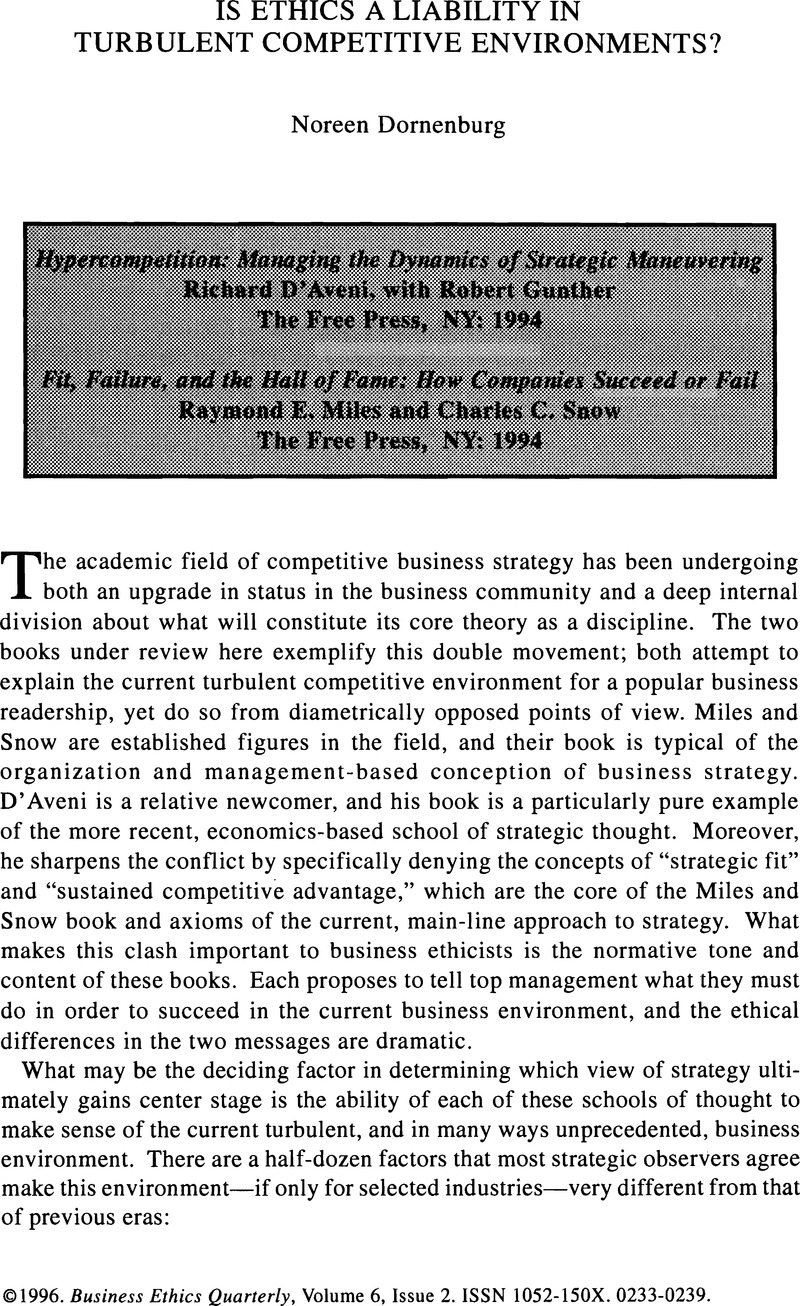Published online by Cambridge University Press: 23 January 2015

1. Miles and Snow, pp. 45-47; D'Aveni, pp. 1, 4-6 in particular, but he cites these new market conditions continuously throughout.
2. D'Aveni, p. xiii.
3. Miles and Snow, pp. 18-19.
4. Miles and Snow, p. 7.
5. For the meaning of this term in this context, cf. Freeman and Gilbert, Corporate Strategy and the Search for Ethics (Prentice-Hall: 1988).Google Scholar The enormous stress that these authors place on respect for individual autonomy and collective assent as necessary conditions of ethical business activity would make doing strategy for large firms nearly impossible. However, in the new forms of organization discussed in this review, to a surprising degree these stringent ethical preconditions may actually be met.
6. James Bryant Quinn, et al. “Technology in Services: Creating Organizational Revolutions,” and 'Technology in Services: Rethinking Strategic Focus,” Sloan Management Review (Winter, 1990). See also: Davidow, W. and Malone, M.The Virtual Organization (Harper Business Books: 1992).Google Scholar
7. Miles and Snow devote a chapter to each of these concepts, and they compress the exploding literature on this topic very nicely. See also: Peter, M. Senge, The Fifth Discipline: The Art and Practice of the Learning Organization (Doubleday/Currency: 1990),Google Scholar and James, Bryant Quinn, Intelligent Enterprise: A knowledge and Service Based Paradigm for Industry (The Free Press: 1992).Google Scholar
8. Miles and Snow, p. 184.